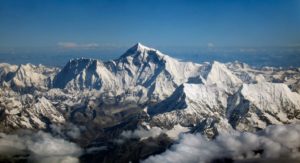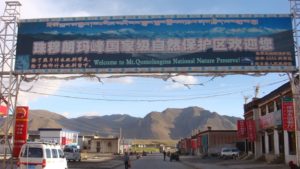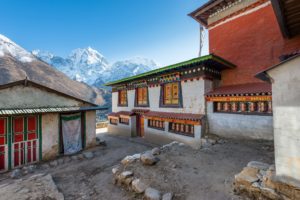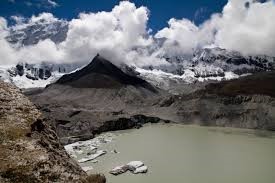With the tagline ‘Conservation, Community and Culture’, The Mountain Institute (TMI) has been working for mountain chains across the world since 1972. It is a global non-governmental organization that currently works in the Himalayas, Andes and Western USA with the common goals of uplifting the lives of the mountain communities and protecting the fragile ecosystem.
With a headquarters office in Washington D.C. and locally-staffed offices in Nepal and Peru, the organization is majorly decentralized working on several levels for their common goals. At a global level, it is spreading awareness and making a stand to bring mountains in the limelight of global priorities. It is a significant member of the Mountain Partnership, an international alliance of governments and organizations to achieve sustainable mountain development around the world. In recent years, it has successfully worked in adding mountains to the United Nation’s Sustainable Developmental Goals. At another n level, the organization has launched projects ranging across mountain chains covering trans-boundary areas. At the national level, the NGO works with the policy-making agencies and Governments to help them understand the issues of mountain people. And on the regional and local levels, it is working with the rural communities that live within the mountain ecosystem.
TMI recognizes that bureaucrats and policy makers living miles away from the source of the problem cannot make a change alone, neither can the scientists and experts who will spend a few days in the area to find a remedy and move on. It is the local communities who have lived in the mountains for generations that can make significant changes. Thus, all of the Institute’s policies involve the participation of the local communities. But for this as well, the socio-economic stability of the communities is important as empty stomachs cannot conserve the environment. It is seen that these mountain communities are often marginalized, isolated and forgotten from the rest of the society. That is why involving them in major decision-making policies helps to ensure the upliftment of the mountain ecosystem while also helping local people develop more sustainable livelihoods and better access to government services.
In the Himalayas, mainly in Nepal, TMI has been working for the upliftment of the communities for over two decades. Some major milestones of the organization in the area are the Qomolangma National Nature Preserve and the Makalu Barun National Park covering the Mt. Everest area in Tibet and Nepal respectively.
Another major milestone is the Langtang Ecotourism Project that organized committees in the villages along the major tourist routes making the communities self-reliant and empowering local women. TMI makes sure that along with the economy of the communities, their culture is preserved as well. It has worked on the restoration of major historical and cultural monuments in Nepal, especially prior to the 2015 earthquake. The list includes the Pangboche Monastery in the highest altitude permanent settlement on the trek to Mt. Everest and Rinchenling Monastery in the remote village of Halji.
TMI has also undertaken a unique project of bringing mountain communities across the world together to share knowledge and solve the common issues they face. The Global Glacial Lake Partnership brought experienced Peruvians who have tackled the issues of glacial lake expansion before to the remote Imja valley in Nepal. With the shared knowledge of local community members from both Nepal and Peru plus expert opinions from glaciologists and social scientists from across the world, they helped create solutions for the fastest expanding glacial lake in the Hindu-Kush stretch—Imja Lake. After five years of research and local involvement, the Government, with the manpower of the Nepalese Army, engineered a way to lower the water level in the lake. level. This is one of a kind project at this altitude thankfully achieved with the collaboration of the organization and the Government, saving many lives.
Another brainchild of the organization is the Mountain Ecosystem-based Adaptation (EbA) Program. In collaboration with the International Union for the Conservation of Nature (IUCN), this program is a part of the International Climate Initiative (IKI). Understanding that mountain ecosystems are fragile and highly sensitive to the rapidly changing climate, managing natural resources in mountains is a critical priority not only for local communities but for downstream populations as well. In the Nepal EbA project, the Institute will implement its participatory, inclusive approach to finding sustainable solutions. A key element of this approach is to include segments of society that are marginalized and historically and culturally oppressed.
In Nepal, this includes communities such as the Dalits and Janajatis. Women are also very much included in all phases of the EbA project in Nepal. Mountain EbA is an ongoing program stretched over the period 2017-2020 involving six countries- Nepal, Peru, Uganda, Bhutan, Columbia, and Kenya. One of TMI’s EbA projects has already won the 2017Solution Search “Farming for Biodiversity” Award in the area of “Water Impact.” Another EbA project is currently a finalist for the prestigious 2018 St. Andrew’s Prize for the Environment.
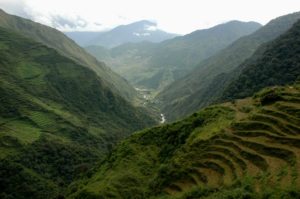
TMI’s Medicinal and Aromatic Plants Program (MAPs), one of the biggest success stories of the organization in this region, operates in 11 mountain districts and has trained over 18,000 mountain farmers since its inception in 2001. A significant proportion of these rural, mountain farmers are women. With all these impacts, The Mountain Institute is only motivated to work harder to save the world, one mountain village at a time.

